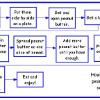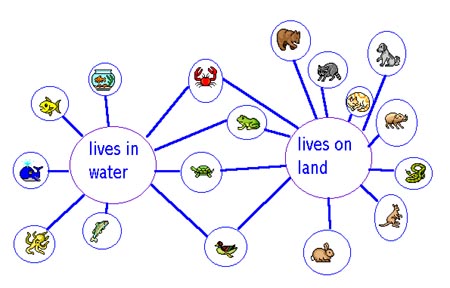Top Ten Takeaways from
The Parent Backpack for Kindergarten through Grade 5
by M.L. Nichols
1. As a parent, YOU are your child's first and most influential teacher. You guide, coach, train and instruct your kids on what to do, how to do it, and what not to do everyday. The average eight-year-old spends 1,170 hours a year at school vs. 3,500 waking hours at home. What you say and do - or not do - on the subject of school and learning shapes your child's attitudes and behaviors about education.
2. Make connections to what your child is learning. Over 70 studies prove that parent involvement is the backbone of successful students. The latest research shows that talking about and making connections at home around what your kids are learning in school leads to better grades. The more connections children make to a subject or theme, the deeper their learning.
3. Respect your child's unique journey. Each child's path from kindergarten through grade five looks very different. Siblings included. The journey through elementary school ebbs and flows like a winding river. Our role as parents is to be on the bank of this river encouraging, guiding, and offering a nudge when needed.
4. Read to your kids every day for at least 20 minutes. The more words, books, and conversations your children are exposed to, the sooner they will learn to read and become a strong reader. Children enjoy being read to because they like bonding with you, hearing the rhythm and expression in your voice, and creating a movie in their mind. Visit the library often and read to your kids through middle school, particularly a classic or something they may not read themselves.
5. Build bridges with schools and teachers. Children thrive when parents and teachers work together. Everything you say and do (via email, phone, notes, or face to face) either strengthens or weakens the bridge you're building with your child's teacher. If you sense there is an issue, raise your concern to the teacher, understanding that how you do that makes a difference in the outcome.
6. Use the Power of P3 to communicate with teachers. Use email for basic communication; phone or face-to-face meetings to discuss issues. When teachers feel accused, they will naturally defend their actions. When they are able to hear your concerns, your child's needs are more likely to be met. Start out POSITIVE (go in with the attitude that you want to work on this issue together). Be PROFESSIONAL (polite and respectful in your observations and feelings). Stay focused on your child's feelings or your own observations, rather than other kids or what the teacher is doing or not doing. Be PERSISTENT when needed.
7. STAC your praise on effort, not grades. Research confirms that focusing on effort or how hard a child works, rather than "smarts" leads to better grades. Kids who are regularly told they are smart fear losing the "smart" label; they fear making a mistake. Kids who believe they are hard workers are more likely to try something new and focus on learning. STAC your praise on effort vs. outcomes: be SPECIFIC in what your praise. Keep your comments TIMELY, Be AUTHENTIC. Praise only what your child can CONTROL.
8. Confidence in children comes from three sources throughout the elementary years: An adult who unconditionally loves and supports the child for who he or she is vs. what they do; A buddy with whom the child can relate to and play with; this can be one friend or multiple pals and is often a sibling, cousin, or neighbor; A competence - an area, an interest or a hobby that the child can master; this can be anything related to academics, athletics, or the arts.
9. Connect to your child's homework. A best practice for homework is 10 minutes per grade, starting with 15 minutes in 1st grade. Our role as parents is to supervise the process, help with time management and make connections to the subject at home, rather than do or correct the work. Teachers want homework to be an authentic reflection of a child's knowledge, so they can re-teach or challenge when needed.
10. Coach your kids on how to self-advocate. It's never too early or too late to begin. Take cues from your child - some are naturally ready to ask for what they need in kindergarten; others will need prompting and nudging through middle school. Guide your kids by role-playing a particular situation at home. Encourage them to ask sooner rather than later, so anxiety doesn't build up.
For more information, visit http://www.theparentbackpack.com
Follow ML on Twitter - @ml_nichols







